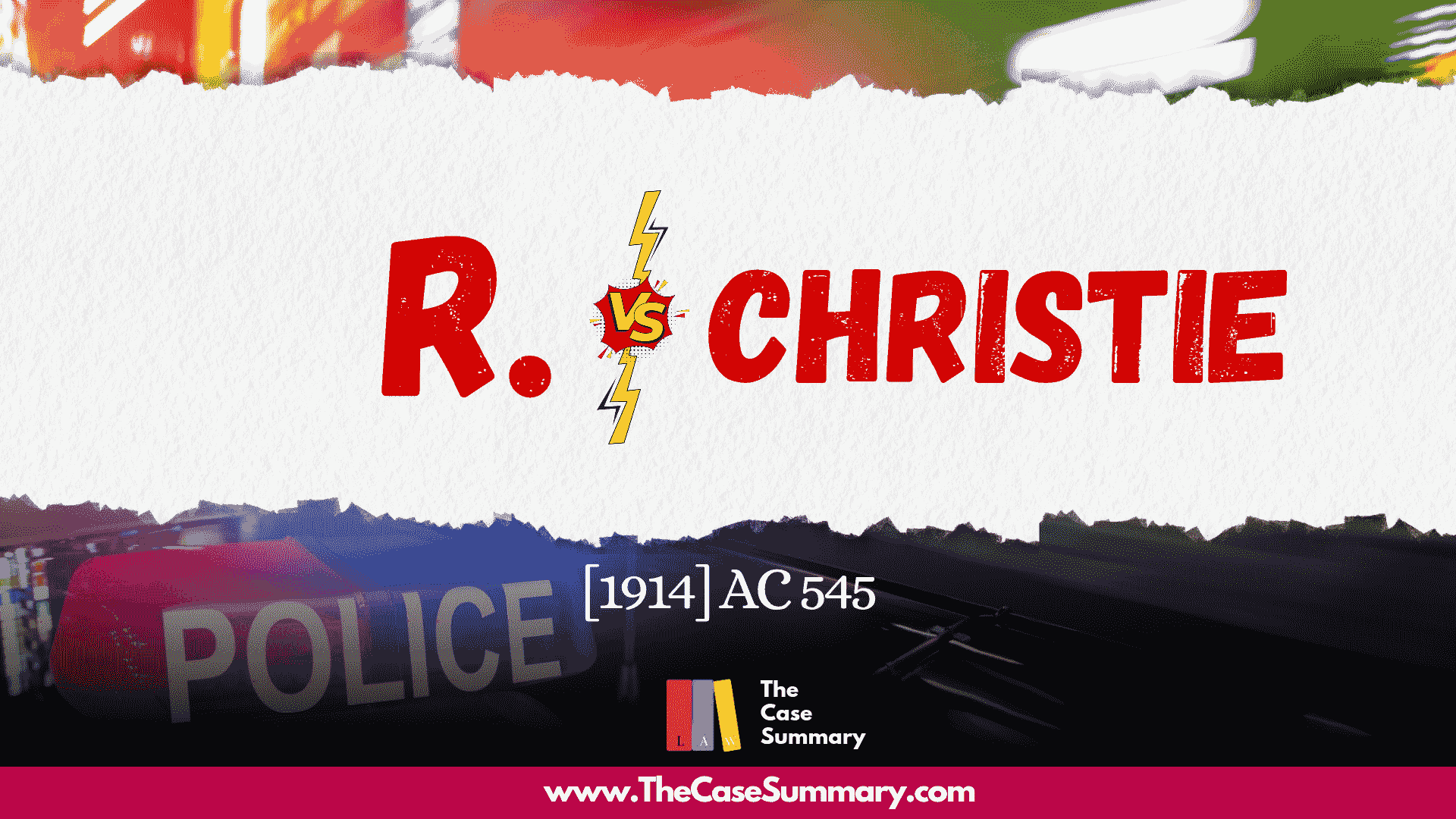R. vs Christie
Citation : [1914] AC 545
Jurisdiction : England & Wales
Plaintiff : R. (Regina/The State) (Director of Public Prosecutions)
Defendant : Albert Christie
Facts :
The Accused, Albert Christie was charged with indecently assaulting a 5-year-old boy, Frederick Butcher. The boy claimed Christie assaulted him in a field. Shortly after, the boy’s mother and a police constable found him and took him back to the field where Christie was present. The boy pointed at Christie and said, “That is the man.” When asked “What did he do to you?” The boy described the assault in detail. Christie responded, “I am innocent.” The boy gave “unsworn testimony” under Section 30 of the Children Act 1908, meaning his evidence alone was insufficient without corroboration, that is it had to be supported by other evidence.
The prosecution called the mother and constable to testify about the boy’s statements. The defence argued these statements constituted hearsay (secondhand information), and should not be admitted as evidence.
Issues :
1. Whether the boy’s out-of-court statements were admissible as evidence of identification?
2. Whether the mother’s and constable’s testimony about the boy’s statements could serve as “corroboration” of his unsworn testimony?
Arguments :
Prosecution’s Argument:
The prosecution argued that the boy’s statements, both in court and when he identified Christie in the field, were crucial to proving the assault. Moreover, the boy’s identification of Christie and his description of the assault should be considered part of the same transaction, making them reliable. Christie’s reaction could be viewed as suspicious, especially if his demeanor (behavior when accused) suggested guilt. Since the boy was too young to swear an oath, his testimony needed support, and the mother’s and the officer’s accounts helped confirm his story.
Defense’s Argument:
The defense argued that the boy’s out-of-court statements should not be used as solid proof. The boy’s words to his mother and the officer amounted to hearsay, meaning they were merely repeating what he said, rather than providing independent facts. Christie’s denial didn’t prove anything; innocent people naturally deny accusations. The law required stronger corroboration (independent evidence) for an unsworn child’s testimony, and the mother’s and policeman’s statements didn’t count as valid corroboration because they were just repeating the boy’s words.
Decisions :
The court decided that while the little boy’s immediate identification of Christie could be used in court, his later detailed description of the assault could not be accepted as evidence because it was considered hearsay (secondhand information). Since the boy was too young to swear an oath, the law required other solid evidence to support his testimony. However, his own previous statements repeated by his mother and the policeman didn’t count as proper supporting evidence.
The court also rejected the prosecution’s argument that the boy’s words should be allowed as a spontaneous reaction to the event, because he had spoken after some time had passed and in response to questions, rather than in the actual moment of the assault. Without enough reliable evidence to support the boy’s testimony, Christie’s conviction was overturned and he went free.
Relevant Principle :
Doctrine of Res Gestae : When something is so closely connected with the main fact that the two can be considered parts of the same transaction, it is called res gestae and is admissible as evidence. Res gestae is an exception to the rule against hearsay.
Relevant Laws :
- The Children Act, 1908 (England)
- Section : 30
- The Evidence Act, 1872
- Section : 6
Author :
1. Rozina Akter Nishu
Note : The Case Summary is a platform by the law students, for the law students. We aim to summarize the facts and decisions of various important cases in both Bangla and English with utmost caution. However, this platform is in no way a replacement for going through the complete judgements by the law students and we discourage any learner from relying on case summaries alone. Thank you



